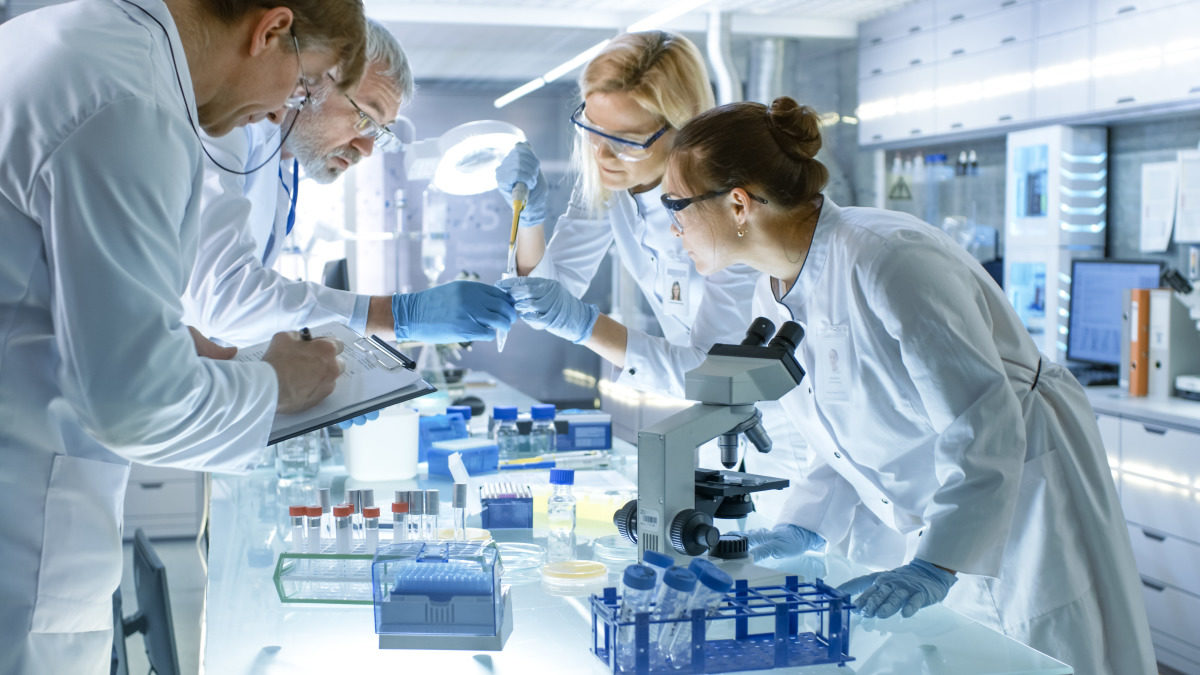

For the past two years, the world has been facing a major health crisis, requiring an ‘all-hands on deck’ approach from the research-based pharmaceutical industry. Not only have vaccines and treatments been developed and produced in an incredibly short timeframe, but we also continued making sure that every patient around the world received the treatment they needed.
The pandemic has brought to light two undeniable truths: first, medicines are strategic assets and, second, research needs to be done in partnerships with every stakeholder. Alongside the challenges of maintaining the competitiveness of our production facilities and ensuring predictable market access conditions, addressing the innovation challenge is a prerequisite to ensure Europe’s health care resilience.
Two undeniable truths: first, medicines are strategic assets and, second, research needs to be done in partnerships with every stakeholder.
In the years to come, Europe will face a research challenge if it does not ensure that the life sciences ecosystem remains strong. At Servier we have decided to bet on Europe since the day the company was created in France, in 1954. Today, 98 percent of the active ingredients of our medicines are produced in Europe, where we have 12 research centers and six production sites. The skills of our employees, the level of our investments, and the partnerships we have with European companies and institutions, can only achieve their potential if collaboration across the health care system is possible and is supported by a legislative framework that enables innovation to reach patients.
Today, breaking the existing silos within the European research ecosystem is imperative in order to maintain a competitive edge. The pandemic has further shone light on the importance of having an open, cross-functional approach, relying on dynamic partnerships to accelerate research, including between the public and private sectors. The Innovative Medicines Initiative (IMI), launched in 2008 between the European Commission and the pharmaceutical industry, has been key in stimulating collaboration between academia, the industry and organizations. Such partnerships are fundamental to further scientific knowledge and collectively tackle development barriers. Our industry will continue its investment in the newly-developed Innovative Health Initiative (IHI) to build on the progresses made by IMI2.
Today, breaking the existing silos within the European research ecosystem is imperative in order to maintain a competitive edge.
Within Servier, collaboration with academia as well as other innovative companies has been seen as an incredible opportunity to learn from each other and better answer patients’ needs. It drove our participation in IMI and it further translated a few years ago in our decision to gather our research and development capabilities in France, in a single cutting-edge place that fosters cross-fertilization. This place will become a reality from 2023 within the Servier Research and Development Institute in Paris-Saclay. This new facility will benefit from its proximity and interactions with innovative companies and high-ranked universities, being in a dynamic scientific and technological ecosystem, and participating in one of the top innovation clusters in the world.
However, to achieve its full potential, such a collaborative research ecosystem must be embedded in a policy environment that is conducive to innovation. The recently-published Pharmaceutical Strategy for Europe, and the ensuing comprehensive review of the pharmaceutical legislative framework, is the opportunity to create a policy environment that will ensure Europe remains a world leader in life sciences.
Within Servier, collaboration with academia as well as other innovative companies has been seen as an incredible opportunity to learn from each other and better answer patients’ needs.
This conducive environment would include a robust protection of intellectual property rights, a policy framework that unlocks the value of data, an efficient and flexible regulatory framework, an ambitious industrial strategy, as well as predictable market access conditions. In addition, the European Health Emergency Preparedness and Response Authority (HERA) will need to have the mandate and the necessary resources to define common research priorities, steer investments and coordinate public and private efforts to address future health threats.
These are some of the many favorable conditions needed for Europe to remain a cluster for innovation where public, private, small and big players speak to each other and invest together for a better, healthier future.
In Paris, Budapest, Dublin and Madrid, and in every European country, we want to continue working for patients, knowing the choices we are making today will have a direct impact on people’s lives. Considerable and fast scientific progress can be made with political impetus and ambition. We have now a once-in-a-generation opportunity to ensure that our research ecosystem in Europe can be at the forefront of the next generation of diagnostics, treatments and vaccines. This will also enable us to broaden our impact beyond Europe, to ensure our therapeutic solutions can be accessible to patients and health care professionals.
In this collective endeavor, our industry will play its part.
This article was first published on Politico’s website.
